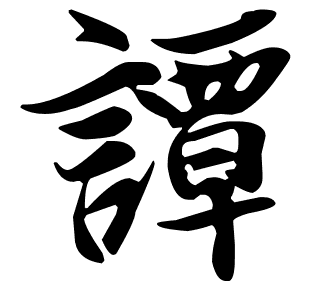Mandarin or The Mandarin may refer to:
Luo or Lo refers to the Mandarin romanizations of the Chinese surnames 羅 and 駱. Of the two surnames, wikt:罗 is much more common among Chinese people. According to the Cantonese pronunciation, it can also refer to 盧.
Yue or Yueh may refer to:
Juan is a given name, the Spanish and Manx versions of John. The name is of Hebrew origin and has the meaning "God has been gracious." It is very common in Spain and in other Spanish-speaking countries around the world and in the Philippines, and also in the Isle of Man. The name is becoming popular around the world and can be pronounced differently according that region. In Spanish, the diminutive form is Juanito, with feminine form Juana, and feminine diminutive Juanita.
Ng is a Cantonese transliteration of the Chinese surnames 吳/吴 and 伍. Alternately, it is a common Hokkien transcription of the name 黃/黄.
Wong is the Jyutping, Yale and Hong Kong romanization of the Chinese surnames Huang and Wang, two ubiquitous Chinese surnames; Wang, another common Chinese surname; and a host of other rare Chinese surnames, including Heng, Hong, Hong, and Hong

Elva Hsiao is a Taiwanese singer. Since being signed to a record deal in 1998 after competing in a singing competition, Hsiao had gone on to release fourteen studio albums and has achieved great commercial success within the Chinese pop music industry. Known for her R&B-influenced ballads, the artist's first album, Elva First Album (1999), was considered one of the first to incorporate R&B in the Chinese market. Her most recent album, Naked Truth, was released in 2020.
Chan is a non-pinyin romanisation of multiple Chinese surnames, based on different varieties of Chinese.

Cài is a Chinese-language surname that derives from the name of the ancient Cai state. In 2019 it was the 38th most common surname in China, but the 9th most common in Taiwan, where it is usually romanized as "Tsai", "Tsay", or "Chai" and the 8th most common in Singapore, where it is usually romanized as "Chua", which is based on its Teochew and Hokkien pronunciation. Koreans use Chinese-derived family names and in Korean, Cai is 채 in Hangul, "Chae" in Revised Romanization, It is also a common name in Hong Kong where it is romanized as "Choy", "Choi" or "Tsoi". In Macau, it is spelled as "Choi". In Malaysia, it is romanized as "Choi" from the Cantonese pronunciation, and "Chua" or "Chuah" from the Hokkien or Teochew pronunciation. It is romanized in the Philippines as "Chua" or "Chuah", and in Thailand as "Chuo" (ฉั่ว). Moreover, it is also romanized in Cambodia as either "Chhay" or "Chhor" among people of full Chinese descent living in Cambodia and as “Tjhai”, "Tjoa" or "Chua" in Indonesia.
Quán is the Pinyin romanization of the Chinese family names 權/权 and 全, as well as a customary spelling of 關. All written forms of the name are rare enough that they do not appear in the list of the 100 most common Chinese surnames.

Tan is a common Chinese surname 譚, and is considered the 56th most common.
Imran, also transliterated as Emran is an Arabic name. The name Imran is found in the Quranic chapter called House of ʿImrān.
Li Wei or Wei Li may refer to:
Chiu is a romanization of various Chinese surnames, based on different varieties of Chinese. It may correspond to the surnames spelled in the following ways in Mandarin pinyin:
Bing most often refers to:
Zhongyi is the Mandarin Pinyin spelling of a Chinese given name.
This page is based on this
Wikipedia article Text is available under the
CC BY-SA 4.0 license; additional terms may apply.
Images, videos and audio are available under their respective licenses.


